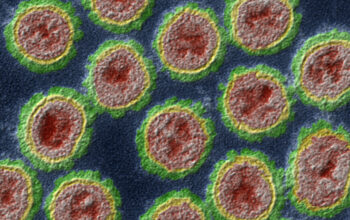
DOCTORS AND DISTILLERS: The Remarkable Medicinal History of Beer, Wine, Spirits, and Cocktails, by Camper English
We have many reasons to be thankful for a nice gin and tonic, but as a malaria-busting beverage, it’s also proved more effective than a previously prescribed cocktail of brandy mixed with animal blood and pepper. As Camper English explains in “Doctors and Distillers,” it did take a few centuries of scientific experimentation to move past those medieval apothecaries. Colonizing observers had to copy the Indigenous peoples’ use of South American cinchona tree bark (which contains the alkaloid quinine), before someone got the notion to mix quinine with carbonated mineral water — along with the juniper-infused gin spirit that had its own medicinal history around Europe.
According to English, that mixed drink was basically a multipronged approach to 19th-century public health: “The gin and tonic was likely created in India by the British and made up of many medicinal parts,” he writes. “The lime for scurvy, the fizzy water for anemia and other conditions, the quinine for malaria and the gin as a diuretic.”
Also, it was delicious.
In “Doctors and Distillers,” English, a San Francisco-based cocktails and spirits writer, has collected many similar stories of alcoholic beverages used as treatments for what ails the mind and body. It’s a mostly chronological journey through major milestones, spanning the B.C. days of fermented Chinese rice drinks and therapeutic wine use during the Indian Vedic period, to the 21st century: “In Ireland, the practice of giving blood donors a free pint of Guinness only ended in 2009.” As one may expect, sketchy patent medicines and doctor-prescribed Prohibition whiskey are also in the mix.
But as he freely admits, the book is not a comprehensive treatise on medicine and alcohol’s shared past. English also avoids deep dives into recent medical studies concerning alcohol’s effects on the body. Instead, “Doctors and Distillers” comes off as a cheerfully informative highlights tour — the literary equivalent of a bowl of tasty bar snacks to consume between sips of social history.
The drink recipes sprinkled throughout the book also garnish the narrative. The mixology notes often coincide with a relevant section of text, as when the author details the history of Dubonnet — a quinine-infused wine created in 1846 as part of a French-government contest to get soldiers in North Africa to drink their medicine — before supplying instructions for the Dubonnet and gin cocktail favored by Queen Elizabeth II.
The book’s pace can be uneven (English does gas on about the development of carbonation for several pages in the name of science), but he has a flair for digging up fun facts. Take, for example, Dom Pérignon, a Benedictine monk born in 1638 who later developed a strong interest in viniculture: That guy didn’t invent champagne.
Other monastic medicinal contributions to the liquor cabinet are discussed — Chartreuse, Bénédictine and Buckfast Tonic Wine — as are some old health measures that have echoes today. English compares the tiny “wine windows” built into Italian establishments to minimize personal contact during disease outbreaks to the takeout windows of urban bars struggling to stay open in the early months of the coronavirus pandemic, when “Aperol Spritzes stood in as modern-day plague waters.”
He later mentions the 105-year-old New Jersey woman who credited her daily consumption of nine gin-soaked raisins as a factor in surviving the disease. Perhaps it’s the current proximity, but English’s inclusion of previous pandemic practices gives “Doctors and Distillers” an extra dose of insight into human nature. Ever mindful of certain tendencies to seek alternatives to established science, he offers his wisest words in the book’s opening disclaimer: “If you need medicine, talk to your doctor. If you need a cocktail, see your local mixologist.”
DOCTORS AND DISTILLERS: The Remarkable Medicinal History of Beer, Wine, Spirits, and Cocktails, by Camper English | 348 pp. | Penguin Books | Paper, $17.99



